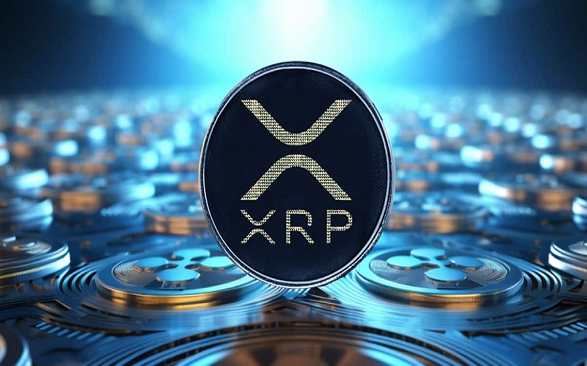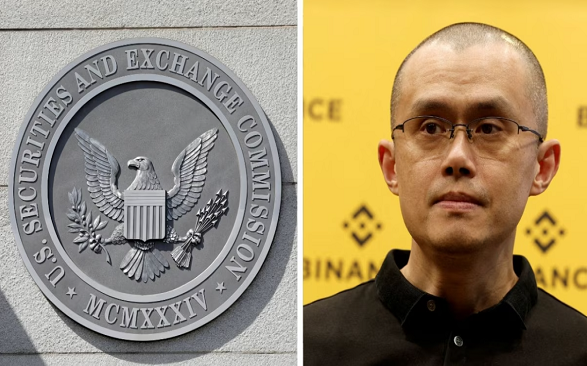by Sylvester Iyere and Solomon Victor
The long-running legal battle between Ripple Labs and the U.S. Securities and Exchange Commission (SEC) has officially ended. On 7 August 2025, both parties filed a joint dismissal of their appeals with the U.S. Court of Appeals for the Second Circuit. This landmark development brings much-needed clarity to the status of XRP, one of the largest cryptocurrencies by market cap.
The End of a 4-Year Saga
The SEC initially sued Ripple in December 2020, alleging that the company conducted an unregistered $1.3 billion securities offering through XRP sales. In July 2023, Judge Analisa Torres ruled that XRP sales to retail investors on secondary markets weren’t securities transactions, while institutional sales did violate securities laws. With the SEC walking away from enforcement action, this ruling now stands as the final judgment.
In June, Ripple CEO Brad Garlinghouse did say that the lawsuit was coming to a close: “We’re closing this chapter once and for all and focusing on what’s most important—building the Internet of Value.”
Regulatory Clarity and Industry Implications
The end of the XRP lawsuit between Ripple Labs and the U.S. SEC brings significant regulatory clarity to the broader crypto industry. With the SEC dropping its appeal, Ripple’s position is solidified, potentially influencing future token classification interpretations, especially for XRP, a top cryptocurrency by market cap ($178.51B as of 8 August 2025).
Via a Linkedin post, Rume Ophi, a leading crypto analyst and founder of Crypto Preacher Academy, shared his thoughts on the conclusion of the US SEC-XRP lawsuit, highlighting the significance of the lawsuit’s end for Ripple, XRP holders, and the broader crypto industry.
“It’s finally over. Five years. Countless headlines. Endless debates about what this case meant for crypto. Today, it ends with a joint dismissal. This wasn’t just Ripple’s fight. It was a fight for regulatory clarity in our industry. It took this long because the stakes were high. Not just for XRP holders but for everyone building in blockchain.”
“The victory? Ripple walks away with its head high. The uncertainty is gone. And the path ahead for XRP is clearer than it has been in years.”
“Will XRP fly in the coming months? We’ll see. One thing’s for sure… this moment will be remembered as a turning point in the push for fair crypto regulation. Sometimes, the long fights are worth it.”
Read also: US SEC and Ripple’s $125M XRP Fine: Why has the Court rejected settlement?
Key Implications of the Lawsuit’s End
- Regulatory Shift: The SEC’s decision to drop the appeal signals a shift away from aggressive enforcement under the Joe Biden administration, potentially leading to clearer regulatory frameworks rather than enforcement-driven crackdowns.
- Impact on Token Classification: The outcome may influence how digital assets are classified and regulated in the U.S., reinforcing the idea that not all digital assets should be classified as securities.
- Increased Institutional Adoption: Analysts believe this could pave the way for greater institutional adoption of XRP and its use in cross-border payments.
Read also: XRP Defies Volatility: Trading Volume Holds Strong
Market Reaction to Dropped Lawsuit
As of 8 August 2025, XRP is trading around $3.32, up nearly 8.5%. With legal uncertainties lifted, analysts suggest XRP could resume its bullish momentum. Short-term resistance lies near $3.60.
- Regulatory Precedent: The case outcome could become a key reference for how courts evaluate whether digital assets qualify as securities.
- Price Predictions: Analysts predict XRP could reach $5.05 by the end of 2025, fueled by ETF approvals, Ripple’s banking license application, and the resolution of the SEC lawsuit.
The end of the legal battle brings optimism to the XRP community and could pave the way for Ripple to expand its operations and build financial sector partnerships, especially in jurisdictions with clearer regulatory guidelines. However, Ripple remains barred from conducting unregistered institutional sales of XRP. Publicly, there’s renewed discussion around XRP ETF news, as clear legal status could pave the way for institutional adoption. Searches like “will XRP go up” and “XRP price prediction after lawsuit” have surged among investors.
Lessons for Regulators Globally from the US SEC-Ripple Lawsuit
- Need for Clear Regulatory Guidelines: The case highlights the importance of clear guidelines on digital asset classification and regulation. Ambiguity can lead to prolonged legal battles and uncertainty in the market.
- Balancing Innovation and Oversight: Regulators need to balance fostering innovation in the crypto space with protecting investors and maintaining market stability.
- Impact on Global Regulatory Approaches: The case’s outcome may influence how other regulators around the world approach digital asset regulation, emphasizing the need for jurisdiction-specific clarity.
- Precedent for Digital Asset Classification: The court’s distinction between XRP sales to retail investors versus institutional sales could serve as a reference point for future cases involving digital assets.
Implications for Global Regulators Other regulators can learn from this case by developing clear, tailored frameworks for digital assets; considering the implications of enforcement actions on market stability and innovation; and ensuring regulatory approaches are adaptable to the evolving crypto landscape.
Lessons for Innovators from the US SEC-Ripple Lawsuit
- Understand Regulatory Landscape: Innovators need to understand and navigate the regulatory landscape in their target jurisdictions to avoid legal challenges.
- Compliance is Key: Ensuring compliance with existing regulations can help mitigate risks of enforcement actions and foster trust with users and investors.
- Clear Communication on Token Use: Innovators should clearly communicate the use and nature of their tokens to avoid misinterpretation by regulators and users.
- Adaptability to Regulatory Changes: The evolving nature of crypto regulation means innovators must stay informed and adaptable to changes in regulatory approaches.
Innovators in the crypto space can benefit from: proactively engaging with regulatory bodies where possible; building compliance into their development and operational processes; and monitoring regulatory developments to adjust strategies accordingly.
Read also: XRP Price Projection: A Potential Surge to $65.63 by 2030?
Discover more from Crypto Asset Buyer
Subscribe to get the latest posts sent to your email.





